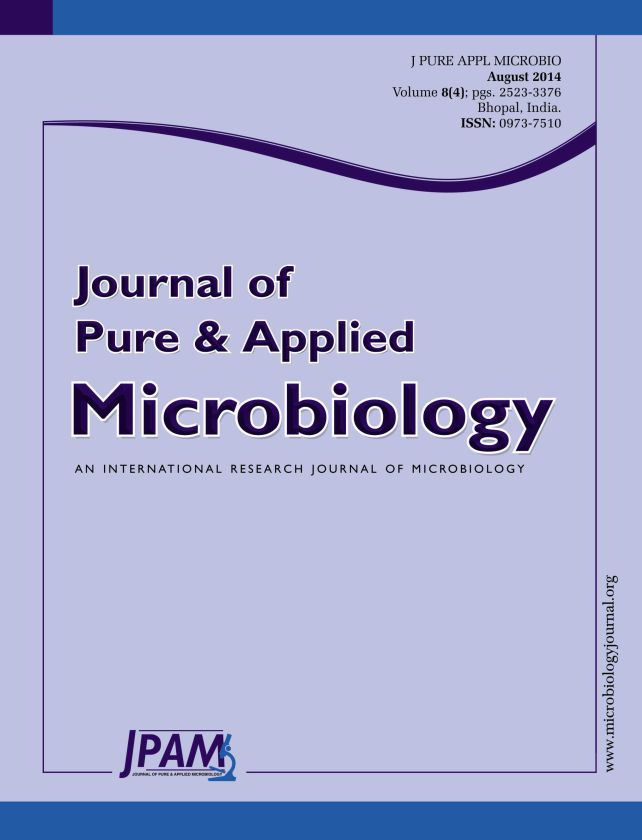Xylitol, a natural sweetener, was produced by biotechnological methods using novel yeast which was isolated from sugarcane extracts of Sathyamangalam region, Tamilnadu, India. The yeast was identified based on its morphological, microscopical analysis and 18S rRNA molecular studies. As per the phylogenetic tree’s suggestion, the yeast strain was named as Candida tropicalis isolate Balki1. The partial 18S rRNA sequence was submitted to NCBI Genbank and the accession number KC415251 was assigned. Improved fermentation conditions of xylitol production were found at pH 5, Temperature 30°C & initial xylose concentration 10% (w/v) respectively. Xylose reductase was the key enzyme mediating the xylitol production. The kinetic parameters were estimated as 71.54 mM and 0.696 U/mg of protein for the enzyme xylose reductase. The study suggests that the first reported yeast isolate can be espoused for large scale xylitol production.
Xylitol, xylose reductase, Candida tropicalis, XR assay
© The Author(s) 2014. Open Access. This article is distributed under the terms of the Creative Commons Attribution 4.0 International License which permits unrestricted use, sharing, distribution, and reproduction in any medium, provided you give appropriate credit to the original author(s) and the source, provide a link to the Creative Commons license, and indicate if changes were made.


